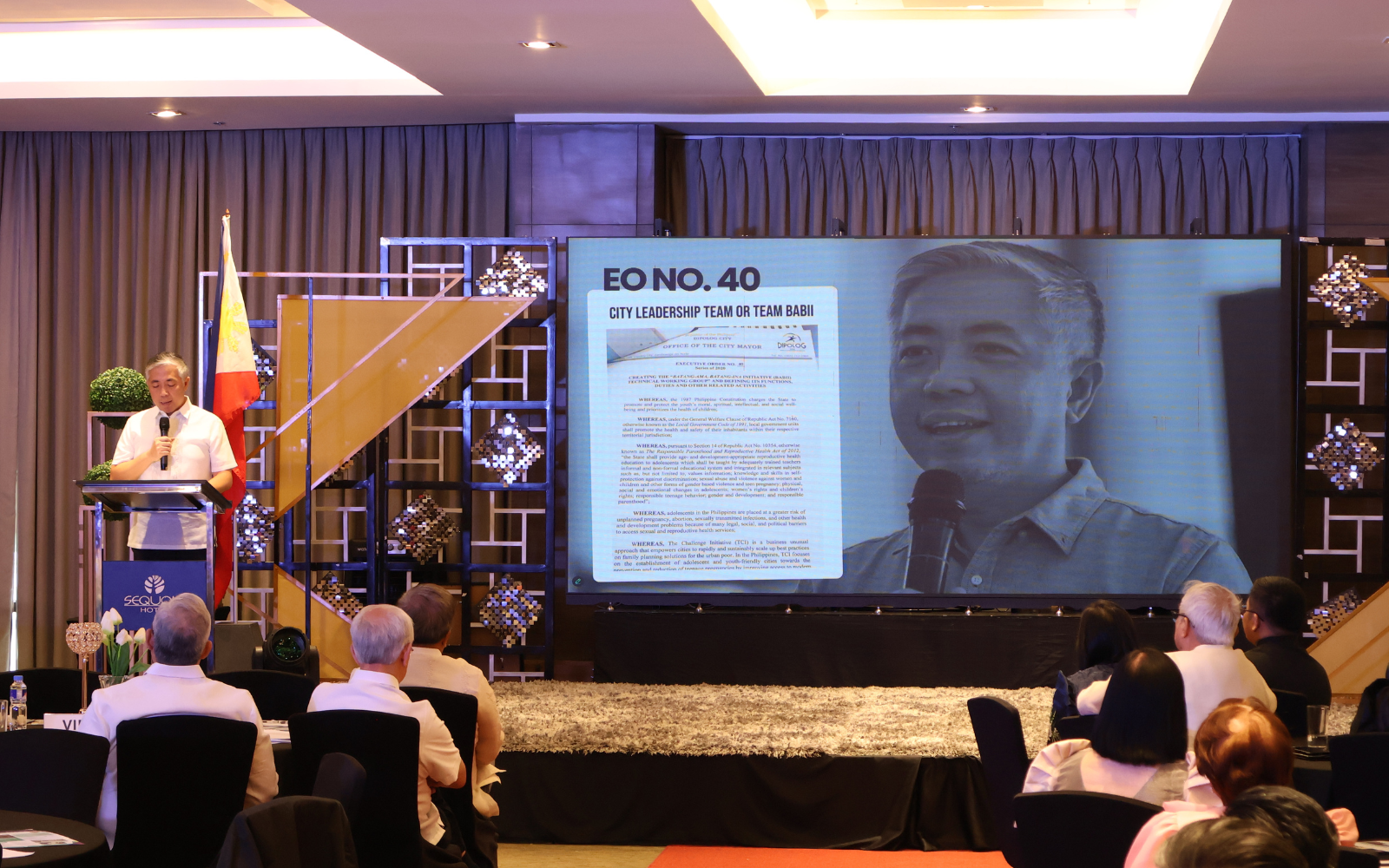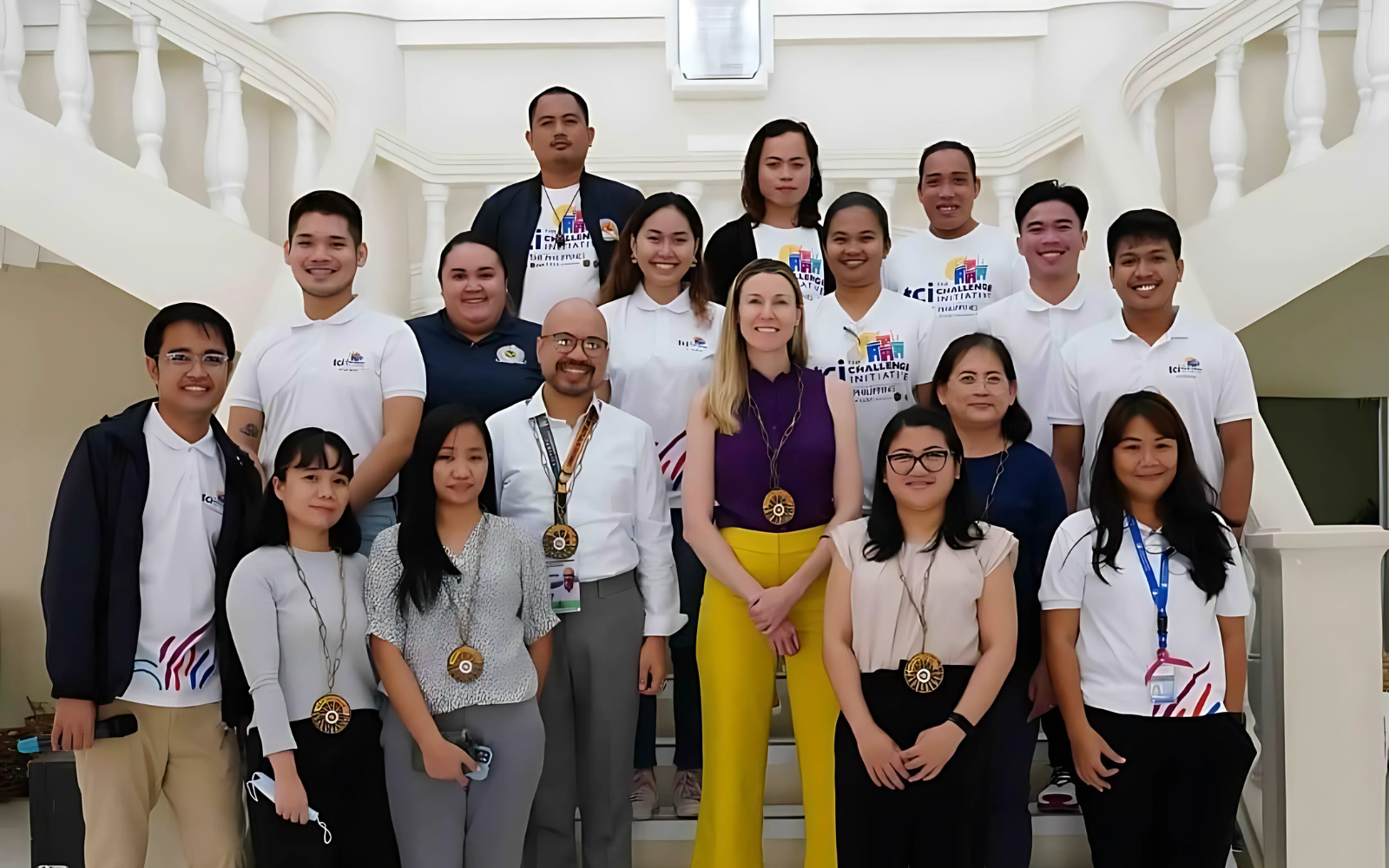Sustainable Solutions: Dipolog City’s Comprehensive Fight Against Adolescent Pregnancy
Stories

Effective leadership that prioritizes doing the right thing leads to positive outcomes. Dipolog City Mayor Darel Dexter T. Uy has taken a proactive approach to addressing teenage pregnancies, making the city a leader in tackling this issue. Even before it became a national priority in 2021, Mayor Uy had already started implementing strategic measures.
In 2018, Dipolog City’’s adolescent birth rate (ABR) was 73.8 per 1,000 live births, meaning 548 adolescents gave birth. It declined to 55.6 in 2019 (420 births), but this was still higher than the national target of 37.
A Unified Stand Against Teenage Pregnancies
Dipolog City joined The Challenge Initiative (TCI) in 2020, a partnership between the Zuellig Family Foundation (ZFF) and the William Gates Sr. Institute for Population and Reproductive Health. This gave the city clearer directions in addressing adolescent and youth sexual and reproductive health (AYSRH) issues.
Mayor Uy, who had undergone a ZFF leadership program, created the City Leadership Team called Team BABII – Batang Ama, Batang Ina Initiative (Team of Young Dads and Moms Initiative). “I called on team members to create a unified, comprehensive youth program that adopted a whole-of-government, whole-of-society, and whole-of-systems approach,” he said. This approach gained support from city departments, national agencies, and NGOs.
One major result was the Department of Education’s involvement in youth summits for Grades 8 and 9 students to raise awareness about sexuality and reproductive health. The city also organized dialogues between teens and parents, along with interactive sessions on adolescent sexual and reproductive health.
Data-Driven Programs
With TCI’s guidance, the city started collecting disaggregated data to create targeted programs. Initially, health data only covered women aged 0 to 49, but Mayor Uy pushed for data collection specific to ages 10 to 14 and 15 to 19 years old. This revealed the true scope of the problem.
As a result, Dipolog City’s ABR dropped from 50 births per 1,000 in 2020 to 31 in 2023 and is projected to reach 25 by the end of 2024. “We now regularly collect, monitor, and analyze age-specific data to guide planning and programming,” Mayor Uy said. Monthly audits ensure data accuracy.
Empowered Health Workers
The Leadership for Adolescent and Youth-Friendly Cities (LAYFC) program, developed by ZFF under TCI, trained city health and education leaders to identify root problems and work on solutions. The city also partnered with the Department of Health and the Commission on Population and Development for technical training.
Under the Family Planning Competency-Based Training (FPCBT), healthcare professionals like doctors, nurses, and midwives were trained in modern family planning methods. This contributed to an increase in modern contraceptive use (mCPR) from 47% in 2019 to 55% in 2023.
The LAYFC also extended to youth and barangay (village) leaders. Many barangay health workers (BHWs) became more involved in addressing AYSRH issues. Mesla Saladdani, a BHW, shared, “If TCI existed when I was younger, I wouldn’t have been a teen mom.” Today, BHWs are more engaged in supporting young parents, and there are also livelihood programs and scholarships to help keep them in school.

Expanding Access to Adolescent Healthcare
The city also invested in adolescent-friendly health facilities (AFHFs). By 2024, all 28 health centers in Dipolog City were accredited as AHFHs, offering youth-focused services like counseling, immunization, and health education. These facilities have drawn young people from both Dipolog City and nearby towns.
Legal and Financial Support
Dipolog City’s commitment to youth welfare strengthened further with the enactment of the Child and Youth Welfare Code in 2022, which outlines the rights of children and the responsibilities of parents and local government. Additionally, the city has consistently increased its annual budget for AYSRH and family planning programs.
Ensuring Long-Term Impact
There is confidence that AYSRH efforts will continue in Dipolog City even after TCI programs conclude. Mayor Uy and his team have institutionalized programs to ensure sustainability beyond his term. By engaging and training youth, community leaders, and agency heads, they have built a network of advocates committed to adolescent health and well-being.
Dipolog City’s success in addressing teenage pregnancies serves as a model for other communities. By using data-driven strategies, investing in youth empowerment, and fostering partnerships, the city has shown that meaningful change is possible. Moving forward, the goal remains clear: to create a future where young people can thrive and reach their full potential.